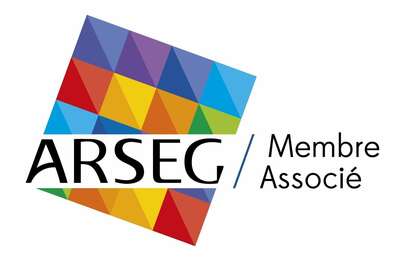Rarely has the desire to go elsewhere been so strong as since the beginning of the health crisis. What if we literally started by changing our air?

Worse, a quarter admit to regularly twiddling their thumbs. This happens "sometimes" for 64% of them*. Uninteresting work because it is repetitive, overly restrictive working hours, boring colleagues, etc.: there are many reasons given for this widespread boredom. The reasons given for this widespread boredom are numerous. For almost half of the professionals, this monotony stems from a feeling of uselessness. And it is to be feared that boredom is affecting an ever-growing proportion of the working population. Since the beginning of the health crisis, 55% of French people have been led to reflect on the meaning of their work and its usefulness, according to a YouGov survey.
It is therefore hardly surprising that the French dream of leaving everything behind. Emancipation from the workforce, the desire to see if the grass is greener elsewhere, retraining, the demand for long-distance work: more and more of them want to take a breath and give their professional lives a second wind. 2.6 million of our fellow citizens have already taken the plunge by changing jobs or moving house. What is at stake for companies? Retaining talent at all costs. And, on this subject, we cannot blame them for lacking imagination! The fintech Finom sends its employees to telework in the sun. Artur'In, a start-up in the field of digital marketing, pays its employees two months' sabbatical. As for the employees of Publicis? Since January, they have been able to telework for six weeks a year in any of the countries where the group operates.
Change of scene - On the flip side, 2.6 million of our fellow citizens have already changed jobs or moved house.
These figures and examples fit perfectly into the narrative of a 'new era' built on 'changes in the air'. This is why they are widely reported in the media. On the other hand, few articles take the phrase "change of air" literally! Yet it is by taking this subject very seriously today that it will be possible, tomorrow, to build the world of tomorrow. We explain why in 5 figures.
90 %
That'show much time we spend indoors. On average, we even spend almost 15 years of our lives in the workplace. The problem? The air is five to seven times more polluted indoors than outdoors... A figure that the 52% of French people who are still unaware that their exposure to indoor pollution is greater than their exposure to outdoor pollution** are not aware of.
19
The exploratory study conducted jointly by the French National Health Security Agency (Anses) and the Observatory of Indoor Air Quality (OQAI) estimated the annual cost of indoor pollution at 19 billion. In addition, there are 20 000 premature deaths. The cost to employers? 440 per worker per year, according to a study by the American College of Allergologists, which explains this amount in the light of sick leave and reduced productivity.
Change the air - Front side: The air is five to seven times more polluted indoors than outdoors.
10
The impact of office air pollution on employee productivity has been demonstrated by Harvard researchers. Their study revealed that low ventilation and high levels of particles such as PM2.5 or CO2 could cause a drop in performance in employees subjected to cognitive tests. In these tests, the researchers found a decrease in the accuracy of answers when PM2.5 levels increased by 10 micrograms per cubic metre.
3
While the Harvard study focused on one particular source of indoor pollution, it is too often forgotten that there are three main families of pollutants potentially present in offices:
- Chemical pollutants such as volatile organic compounds or benzene, to which any building located near a road is exposed, but also any office adjoining a garage or car park, can be a source of pollution.
- Physical pollutants such as asbestos and particles that come from... printers or photocopiers!
- Pollutants of biological origin such as bacteria, moulds or viruses, which we now know can be very dangerous for the respiratory tract.
Air pollution in offices comes from three main categories of pollutants:
- External sources
- The building itself
- The occupants ... !
10 %
These three types of pollutants do not spare our offices. How can it be explained that they are still ignored by policies and measures to combat indoor pollution? The workplace is a priority for only 22% of French people. Far behind their bedroom (42%) or the doctor's surgery (38%). Moreover, less than 10% of us know that there are devices for cleaning the air... and therefore use them! In addition to ventilation, which is used by 9 out of 10 French people, this is the only way to reduce indoor pollution***. And with UV-C, it is possible to kill two birds with one stone: breathe healthy air and prevent the risks associated with exposure to noise!
Marianne Fougère
* OpinionWay survey of 1,003 employees, conducted for the performance and talent management platform Elevo.
** Elabe, "Pollution de l'air intérieur : Français, Belges, Chinois, même combat", survey conducted for Veolia, June 2019.
*** OpinionWay poll, "What places does air matter to the French", February 2018.






